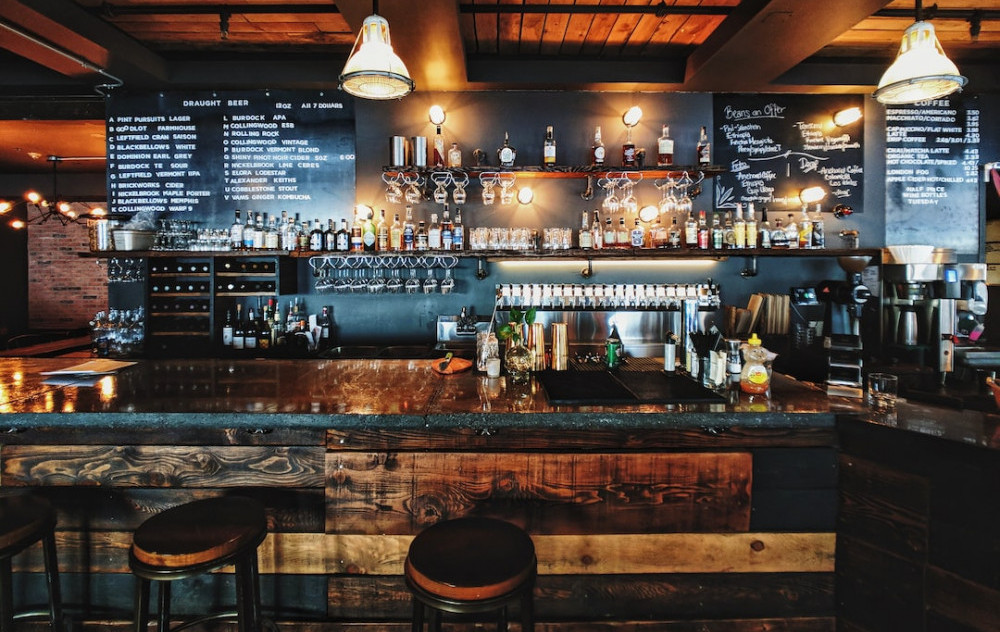This detailed article is all about why restaurant businesses sell cheaply in Australia. The restaurant business is believed to be a risk-free or low-risk venture that is quite profitable. Apart from the initial investment, people believe restaurants can give you lifelong revenues and luxurious life. However, the truth is far from that in Australia.
Unfortunately, many restaurant businesses fail due to poor management and poor planning. But sometimes, after a certain period of successful or unsuccessful selling of foods and drinks, the owners think it is best to sell their restaurant. They burn out quality due to consumer and regulatory demands, so ending up getting rid of the business for cheap.
Sometimes these owner wants to venture into a different industry, as they are usually experiencing financial strains. Thus, whatever the reason, they have to sell a restaurant business with proper preparation.
If you are considering selling a restaurant business in Australia, there are many economic, legal, and financial issues applicable to you too. Food prices are rising continuously, and restaurant profit margins are decreasing as a result too.
Before we further dig into why restaurant businesses sell cheaply in Australia, we must first talk about what a restaurant business is. Then we will explore some factors and tips related to determining the value of your restaurant business.
So, let’s get started.
What Is A Restaurant Or ‘Food And Beverage’ Business?
The restaurant, pub, food, and beverage business industry is all about preparing and serving food and drinks to customers. It includes fast food restaurants, fine dining restaurants, cafeterias, cafes, etc. These types of restaurants vary in size, ambience, and menu offerings.
However, they all share the same purpose of giving the best dining experience to their customers. The main aim of restaurant, food, and beverage operations is customer satisfaction. Hence, they do this by providing them with delicious food in a comfortable and enjoyable environment.
Restaurant, food, and beverage business also means owning, licensing, and franchising, branded restaurants in Australia.
The restaurant business in Australia is a significant contributor to the economy. Furthermore, it provides many job opportunities and generates billions of dollars annually.
As an owner or a purchaser of a restaurant business, you should know what makes such a business a valuable one.
7 Factors Deciding A Business Salable And Valuable
Many entrepreneurs want to sell their business. Some built their companies to sell from day one, while others do this because of different factors.
For instance, some business professionals sell their businesses due to retirement, health challenges, or other personal circumstances.
Above all, the main thing to consider is that your business must be valuable. If you are selling and the company is not beneficial or doesn’t have a guaranteed future, it will not benefit someone else too.
Selling a business is a critical decision that needs preparation and careful consideration. One of the major factors in selling is determining whether the company is salable and valuable in the first place.
Below are the seven key factors deciding how salable and valuable a business is.
1. Financial Performance Of The Business
Financial performance is the first critical factor in determining whether the business is salable and valuable. It includes profitability, revenue growth, cash flow, balance sheet, etc. Hence, these are the essential factors that potential buyers will consider.
A business with a good profit generation history and positive cash flow will attract buyers. Likewise, a company with significant debt, losses, and negative cash flow becomes challenging to sell.
2. Market Positioning
Another critical factor in deciding the business value and its salability is its market positioning. The industry’s competition, the business’s size, and the market share are essential considerations.
A business operating in a niche market can attracts more potential buyers. On the contrary, a company that works in an over saturated market is challenging to sell.
3. Growth Potential
The rate of growth can impact the value of your business. Effective planning and execution are essential for the company to realize its growth potential. The growth potential also depends on the market demand, industry trends, competition, customer base, management expertise, etc.
The revenues and earnings of a business are also indicators of a company’s growth potential. Businesses must identify growth opportunities to achieve long-term success. Investors always look for a business with a high return on investment (ROI).
4. Operational Efficiency
Operational efficiency is another essential factor in determining if the business is salable and valuable. A good company with efficient systems, trained staff, and better processes will attract more potential buyers. In contrast, an inefficient business may struggle to sell.
Remember, a business where the owner is self-employed or playing a significant role in everyday business function, values less compared to businesses under management.
5. Scalability Of The Business
The term scalability is the ability to grow your business while minimizing the increase in operational costs.
All those businesses that can quickly scale their operations are more valued. Thus, it means that it can adapt to the changing market conditions. In addition, they can also increase the revenue and profits of a business.
6. Legal And Regulatory Compliance
Somebody should evaluate the business’s legal and regulatory compliance by reviewing all governmental requirements, legal documents and filing. Any business with regulatory violations, pending lawsuits, etc., will be challenging to sell. Further, it is also considered an invaluable business.
To solve legal issues, one must hire a qualified attorney or accountant to resolve any outstanding issues. A better business complies with laws and regulations. Moreover, it shows its commitment and ethical business practices. As a result, it adds value and reduces risk to potential buyers.
7. Strength Of The Management Team
If you wonder how your business will be salable and valuable, you might need the right management team. It becomes difficult for you to achieve great things alone. The buyer always wants to invest in a business with a functional team rather than the entrepreneur who owns it today.
To increase a business’s salability and value, a strong management team can provide stability and continuity.
However, when it comes to restaurant businesses in Australia, things fall apart pretty fast…
Tip: Most small restaurant businesses are sold in Australia using social media platforms like Facebook or marketplaces like Gumtree by the owner without involving a business broker.
Why Do Restaurant Businesses Sell Cheap In Australia?
The restaurant industry in Australia is famous for its diverse range of dishes, cuisines, and dining experiences. However, there has been an increasing trend of restaurants selling cheap in Australia recently. Some are increasing their menu prices to sustain while others are selling their restaurant business to business investors.
This phenomenon has sparked curiosity among consumers who wonder why this is happening. There are many reasons for this emerging trend, including increased competition from established restaurants, changing consumer preferences, increased costs, taste demands, etc. Another impact is the COVID-19 pandemic.
There are a few possible reasons why restaurant businesses sell cheaply in Australia. Here’s the list…
1. Intense Competition From Established Restaurants
There is very intense and high competition in the Australian restaurant industry. Businesses need to offer competitive pricing so that they can attract customers. But, this factor is genuine in busy urban areas in Australia, where there are many options for people to dine out.
Due to this competition, most restaurant businesses sell cheaply in Australia. Restaurants face stiff competition from other established networks of hospitality providers like fast food retailers, cafes, etc. In short, restaurant businesses lower their selling price to compete for the exit.
Increasing competition always meant more expenditure, making it harder to turn the business into a profitable restaurant. It is also the reason why the restaurant business sells cheaply in Australia.
2. Rising Inflation And Cost Of Living In Australia
Like everyday Australians, restaurant businesses also feel the pinch because inflation makes purchases more expensive — for instance, fresh ingredients, utility bills, maintenance costs, etc. So, it becomes challenging for restaurants to operate, and they are selling their business.
In a country like Australia, the cost of living is high. As a result, many people don’t have that much disposable income for dining out and dinners.
Business buyers know the restaurant industry well, so they try to pay the lowest price while buying the business.
3. Owner Burnout
Burnout and boredom are other reasons a restaurant owner sells their business. Suppose the owner lost the passion for their business, so they must formulate an exit plan. Yet, if they don’t plan properly, so, there is a chance that their business will sell cheaply in the market.
A business with a burnt-out owner can lead to harmful working conditions, loss of staff and revenue. Thus, the owner sells the restaurant to run away from it.
4. Economic Factors
The economic factor is another critical reason the restaurant business sells cheaply in Australia. There are many factors like increasing the cost of food, changes in consumer spending habits and inflation, etc. Hence, all these factors affect restaurant prices.
To achieve paramount profitability, business owners need to adjust the prices. During periods of slow growth, restaurants lower their prices to stay competitive. They decrease their price demand to sell their business eventually as they are not sustainable anymore.
The restaurant industry in Australia has been hit hard by the economic downturn, with many businesses forced to close their doors. Therefore, they sell their restaurants at a low price is worth more than selling for nothing.
5. Overhead Cost
Running a restaurant in Australia is expensive, just like any other business in Australia. The overhead costs include rent, staffing, and utilities. Some small restaurants lower their prices to offset these costs and decide to remain profitable. Conversely, others sell their restaurant to a suitable buyer or investor.
After paying the overhead costs, the restaurants are usually left with only about 10% in net profit. It is better to stick to a goal of having average-or-better profit margins, of at least 30%. Otherwise, you have to sell your business just as it is happening for cheap these days.)
6. Seasonal Fluctuations
Most of the restaurants in Australia experience a decrease in business, and it also depends on the time of the year. To counteract this thing, they offer discounts to their customers to attract them.
This seasonality is evidence of season to season, month to month, and days of the week too. For example, people dine less during winter. During the week, restaurants are usually busy from Fridays to Sundays, while Tuesdays record the lowest sales.
Some restaurant owners expect a drop-in sale during a seasonal holiday, winter months, or significant event, as much as up to 60 per cent. However, it exhausts the marketing efforts during the busy season to compensate. Due to this reason, they sell their business if they need help to manage the challenge.
Buying an existing restaurant business is not guaranteed success due to seasonal fluctuations. So, buyers buy at a low price within their budget.
Knowing the challenges of the restaurant industry now, let’s look at the ways potential business owners can increase the value of their business going forward. This is also applicable to you if you are a potential hospitality business buyer, who is thinking of how to scale it after purchasing.
Let’s start moving…
Tip: Most small restaurant businesses are sold in Australia using social media platforms like Facebook or marketplaces like Gumtree by the owner without involving a business broker.
4 Best Tips To Increase The Value Of Your Restaurant Business
The value of a restaurant business depends on more than one element. For example, having a beautiful ambience, the best menu, business location, and sound equipment (if applicable), but sporadic business could be better.
You have to make much effort to increase the value of your restaurant business. For instance, you have to improve the visibility of your business and take care of customer satisfaction and relations. Similarly, take care of the management of processes and staff and check the terms of your current lease.
If you increase the value of your restaurant, then it will also help you when you sell your business one day.
Above all, a valuable business helps in attracting potential buyers.
Below are the four tips to increase the value of your restaurant business.
1. Improve The Marketing And Branding
A strong brand can attract more potential customers. It can also help the restaurant stand out in a crowded marketplace and competition.
Updating the website, logo, menus, and social media presence can help create a recognizable and consistent restaurant image.
Email marketing is another best way to reach potential customers. You can create an offer so that customers subscribe. Likewise, you can send weekly specials to your growing list of subscribers.
2. Build A Strong Customer Base
Building a solid customer base can add value to your restaurant. Gather information about your customers to serve them according to their needs and requirements. Continuously enhance the customer experience by providing them with excellent service.
You must create a welcoming atmosphere and offer them a unique menu at special events. So, as a result, they will become your loyal customers and also recommend the restaurants to others.
3. Invest In Technology
Try to adopt new technology by offering online ordering, mobile payment options, and reservation systems. Proper technology utilization can impact your operations positively. In addition, it can keep all your details in one centralized place.
Use software programs that help owners check their profitability and growth from week to week. Thus, it will help prove the value of your restaurant business to interested buyers and take action fast.
4. Expand The Restaurant’s Reach
You must expand the restaurant’s reach to attract new customers or increase business revenue. Indeed, you can do this by offering delivery options, catering services, and partnering with other businesses.
Similarly, you can sell branded merchandise and rent event space in your restaurant. A well-established restaurant is also easy to sell because of its reputation.
Tip: We do not recommend you purchase a restaurant business that was sold often.
Conclusion
In conclusion, restaurant businesses sell cheaply in Australia due to competition, owner burnout, and possible overhead costs. Also, the menu and chefs’ skills play a significant role in attracting customers. Other factors include increasing customer demands for affordable pricing, economic factors, and a rising inflation rate, which these businesses struggle to sustain.
The high competition in the market forces restaurant businesses to keep their prices low, resulting in a low net profit. Consequently, buyers have become more price-conscious and look for affordable options when purchasing a restaurant business.
Restaurant owners sell their businesses due to financial difficulties and personal reasons such as burn-out, health issues, family emergencies, or relocation. Sometimes, they receive other business opportunities that are more lucrative or aligned with their goals and values.
Whatever the reason, buyers buy a restaurant as it has a loyal customer base. It can generate a steady income for its new owner.
The key to selling a restaurant business as an asset sale is eliminating any ongoing liability. In short, try to get a deal in contract quickly. It is a myth to consider that there is no significant value in selling a restaurant business if it does not earn a reasonable return today.
After all, the new owner’s skills and relationships do the ultimate magic in turning any business into a quite profitable one.
Thanks for reading!





